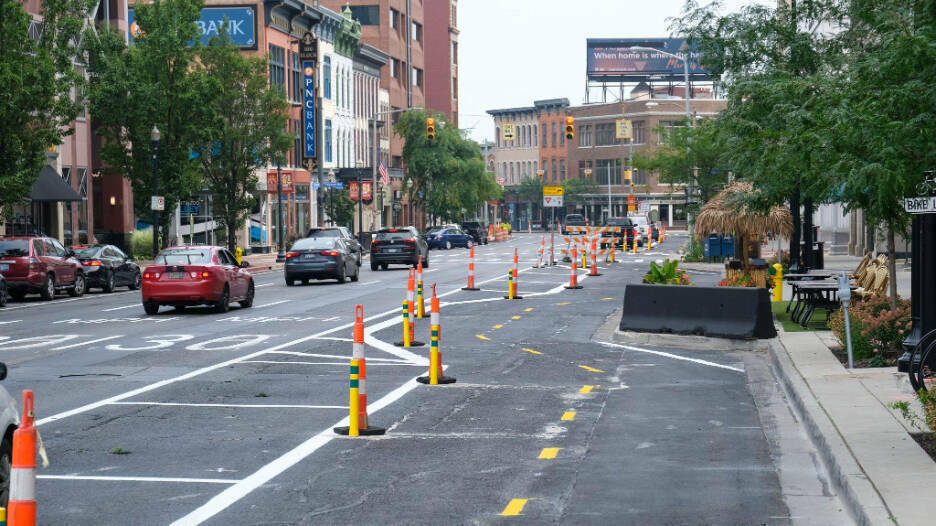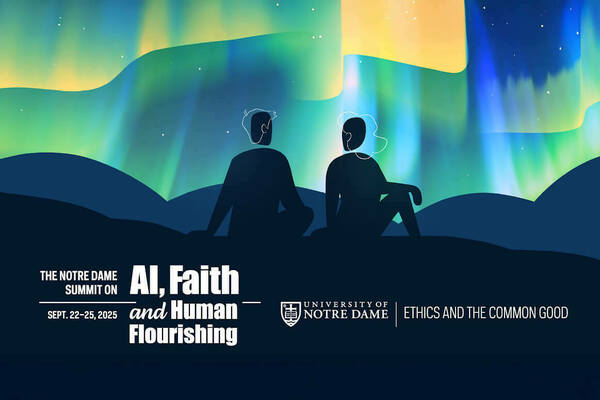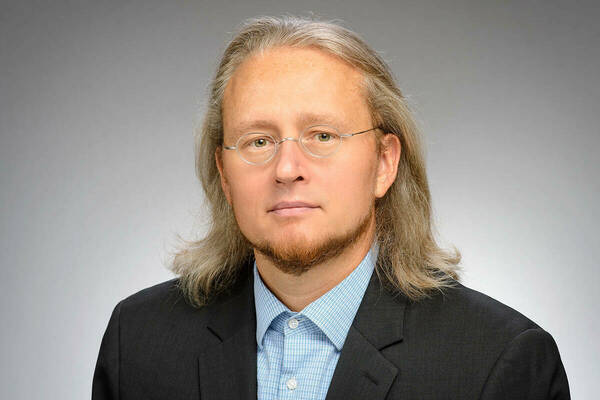School of Architecture charrette yields $98M for downtown Kalamazoo public space regeneration

On June 27, the city of Kalamazoo, Michigan, announced that it was awarded a $25 million grant through the U.S. Department of Transportation’s Rebuilding American Infrastructure with Sustainability and Equity (RAISE) program, as a result of its work with the University of Notre Dame School of Architecture.
The grant, which will support the restructuring of downtown Kalamazoo thoroughfares and public spaces, is the latest of $98 million in grant funding the city has received following an intense, weeklong urban planning session conducted by the School of Architecture’s Housing and Community Regeneration Initiative in August 2022. Known as a Dean’s Charrette, the process resulted in a comprehensive plan to revitalize Kalamazoo’s downtown.
“This grant is but one of an extraordinary total of $98 million the city has received based on the design, visions, ideas and final recommendations of the project completed by the Housing and Community Regeneration Initiative,” said Rebekah Kik, Kalamazoo assistant city manager.
The initiative began in 2021 and has conducted six charrettes in southwest Michigan and northern Indiana. Through its 100-Mile Coalition, it seeks to partner with communities within a 100-mile radius of the University of Notre Dame.
“Our work in Kalamazoo has resulted in the most ambitious regeneration work within the 100-Mile Coalition region since we began the Dean’s Charrettes,” said Stefanos Polyzoides, the Francis and Kathleen Rooney Dean of the Notre Dame School of Architecture.
“We expect similar excellent outcomes going forward because the need to listen to the people of each community to help them rebuild their downtowns and urban neighborhoods is immense. This incredible amount of funding — and the benefits it brings to Kalamazoo — is the ideal outcome for our community-building efforts.”
Marianne Cusato, director of the School of Architecture’s Housing and Community Regeneration Initiative, co-led the Kalamazoo charrette process with Polyzoides.
“The initiative’s charrettes conducted in northern Indiana and southwest Michigan are one of the school’s avenues to positively impact regional communities that have been long disenfranchised,” she said.
The latest $25 million award will fund the rebuilding of the current six-lane, one-way Michigan Avenue, which is downtown Kalamazoo’s main street. The city has received two other grants to assist with the planning, design and engineering of its streets and public spaces.
Through the city’s Streets For All program, downtown streets will be redesigned to provide safe transportation for everyone in the community and to foster a welcoming, inclusive downtown by calming traffic and restoring two-way operations. During the next several years, the streets will be converted to two-way traffic, be modernized with underground utilities and incorporate people-focused, street-level designs. Construction on the street segments is expected to begin in August 2027, Kik said.
Ultimately, Cusato said, the goal is to create human-scale, walkable communities by repairing abandoned, vacant and underused properties; reducing critical housing shortages; addressing inequalities that result from a legacy of housing and transportation policies; restoring blighted historic properties while minimizing displacement; and mitigating the impact of climate change through sustainable development patterns of growth.
“While this work is the cornerstone of our service mission at the School of Architecture and for the Housing and Community Regeneration Initiative, it also serves as a foundation for a body of research that seeks to find solutions that address similar critical issues facing cities throughout our region and across the country,” she said.
Media contact: Carrie Gates, associate director of media relations, c.gates@nd.edu
Latest ND NewsWire
- Banks that identify fraudsters increase loyalty, retain more defrauded customers than others who never were compromisedIn a new research study, Vamsi Kanuri, the Viola D. Hank Associate Professor of Marketing at the University of Notre Dame’s Mendoza College of Business, found that banks that identify fraudsters earn customer loyalty and lose customers if they can’t say who was responsible for a fraudulent transaction.
- Notre Dame to host summit on AI, faith and human flourishing, introducing new DELTA frameworkThe Institute for Ethics and the Common Good and the Notre Dame Ethics Initiative will host the Notre Dame Summit on AI, Faith and Human Flourishing on the University’s campus from Monday, Sept. 22 through Thursday, Sept. 25. This event will draw together a dynamic, ecumenical group of educators, faith leaders, technologists, journalists, policymakers and young people who believe in the enduring relevance of Christian ethical thought in a world of powerful AI.
- Notre Dame Democracy Initiative hosts bipartisan conversation with Western state governorsTwo Western state governors known to work across the aisle on policy issues such as water, housing and energy will visit the University of Notre Dame for a fireside chat about how Western state pragmatism can serve as a model for the country to overcome polarization.
- In new research, Roy Scranton explores climate change and the limits of human progressIn his most recent book, “Impasse: Climate Change and the Limits of Progress,” Scranton, an associate professor of English, defines the impasse he sees as “not only political and institutional, but cognitive, existential and narrative” and asserts that the only path forward is through embracing what he terms ethical pessimism. “A lot of people confuse pessimism with nihilism, apathy and despair,” Scranton said. “But pessimism is actually about recognizing our limits, letting go of unrealistic goals, finding solidarity in the fact of human suffering and doing what you can now, not in some utopian future.
- Notre Dame MBA launches deferred admission programThe Notre Dame MBA Deferred Admission Program allows candidates with little or no work experience, including college seniors, to secure admission before reaching the recommended three years of work experience to enroll.
- ‘Prebunking’ false election claims may boost trust in electionsIn recent years, democracies worldwide have seen a growing erosion of trust in election outcomes and institutions, driven in part by fears of widespread fraud. New Notre Dame research finds that “prebunking” — providing accurate information before false claims spread — boosts trust in elections more effectively than traditional fact-checking.













